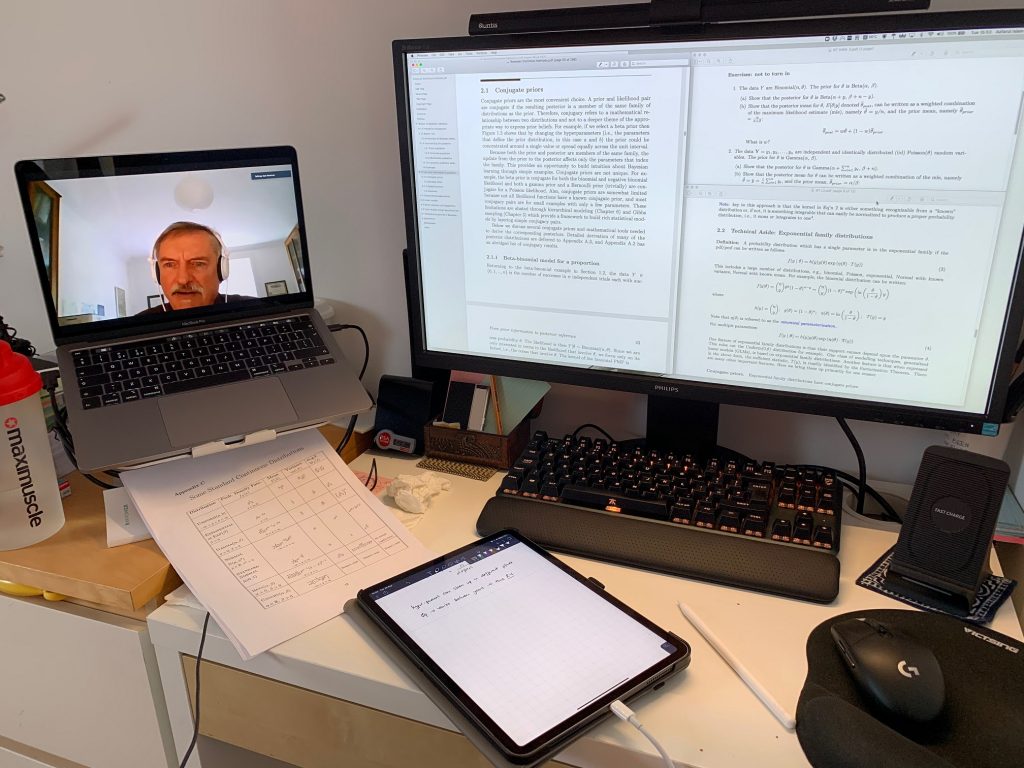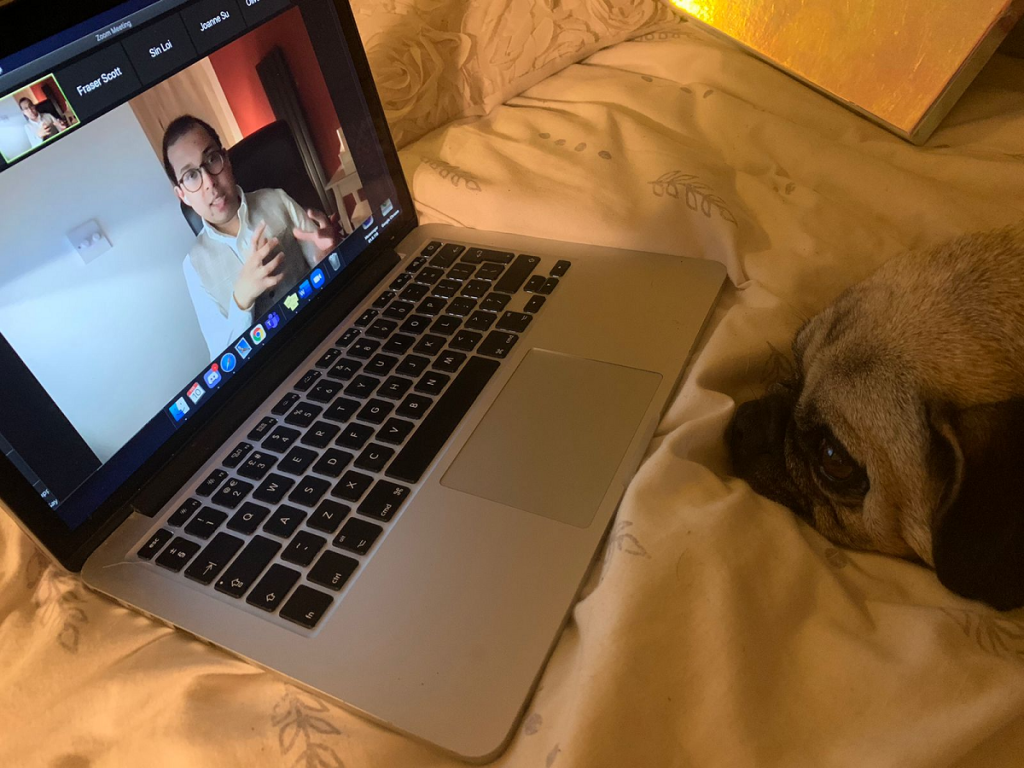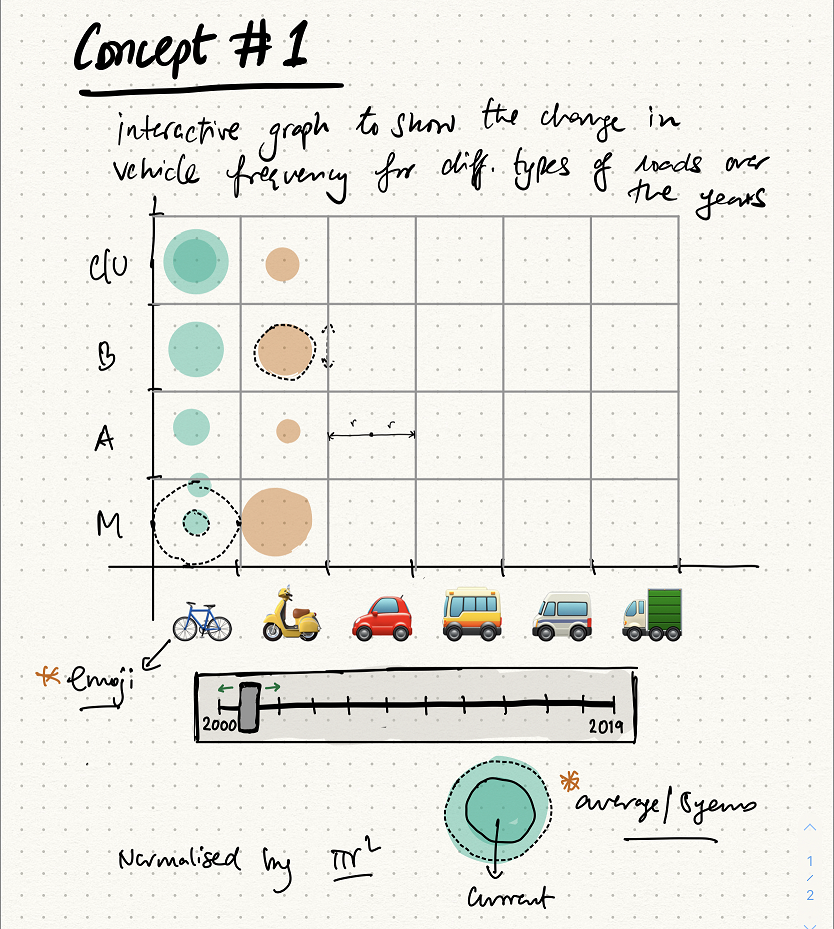 … by Azfarul / from London, UK / MSc Statistics with Data Science / PG (2020-21)
… by Azfarul / from London, UK / MSc Statistics with Data Science / PG (2020-21)
“Are you sure you want to do this?”
In addition to “Sorry, I was on mute!”, this is what I heard most throughout 2020. After a decade of working, leaving behind a fascinating job during global uncertainty to pursue a Masters might have seemed like foolishness. Fast forward more than a year and – after what felt like drowning in hundreds of hours of coursework, endlessly playing and re-playing recorded lectures, dealing with the eerie silence of virtually-conducted examinations, and three intense months of industrially-liaised project work – I still find it difficult to believe how this time flew as it did.
As someone without a rigorous background in mathematics (we can debate the coverage of mathematics in engineering degrees another day) and having been out of the academic loop for many years, it was nerve-wracking to find myself immersed in structured education. Yes, I had done a number of Coursera courses, and yes, there was continuous workplace training, but nothing at work had prepared me for re-entering academia, except perhaps, the nature of work itself.
If I had to attribute anything to being able to complete one of the more difficult postgraduate programmes out there, it would be the discipline, flexibility, and interpersonal skills that become core to working professionals. For prospective mature students considering dipping their toes into the erudite waters of statistics (and data science), they will be heartened to know that they can succeed.
When not trying to make sense of a mere sample of myriad statistical distributions, I typically work in a role that involves dealing with complex processes and talented technical people. The same tools I used in the day-to-day proved to be life-savers during my Masters. For example, without exception, I started each morning with a flash or record card where I wrote down a list of items to be tackled whether it was lectures to watch or coursework to make progress on. Early on, I overestimated what was feasible, which was expected (and you should never feel bad about having unfinished items). After a few weeks with a better idea of my own (admittedly slower) pace of learning, I was able to plan my days more effectively. At some point when a large amount of coursework from different modules ran in parallel, I created a few calendars by hand for each coursework (this was excellent advice from someone at the Listening Service), and then marked off which days I would work on each one – these became visual aids that helped me manage the overlap. Naturally, I used more complex tools at work but I had sorely missed the tactile experience of paper. For those preferring a digital approach, I highly recommend Trello.

Despite being an introvert, I always needed to build mutual, genuine relationships with the aforementioned talented technical people to get work done. The same concept applied here. While it was initially awkward over voice or video chat, I didn’t hesitate to ask plenty of questions (or even answer some) during online lectures and office hours. Let me tell you a secret: asking questions never made someone appear “stupid”. I made virtual study groups with coursemates to tackle problems and discuss ideas, and had one-to-one interactions with the absolutely lovely staff at the School of Mathematics. A coursemate once commented how terrified she was of reaching out to the lecturers, and I told her that they were people too and more than happy to help when students engaged with them. Where possible, I tried to support everyone that I could: whether that meant clarifying concepts that I understood (albeit barely), writing up posts on workarounds or bug fixes with software tools, and offering up advice on life after education.

And the most important method of all: consistency. I admit that lecture and tutorial attendance during my Bachelors was severely lacking and this was one of the factors contributing to, shall we say, inconsistent results. This time, I made an effort to attend any and all contact hours for tutorials, labs, and live lectures. I know that it’s difficult to keep up, and more so when you’re in a room by yourself: the trick was seeing it not as a burden but an opportunity to remain connected and engaged. During these virtual sessions, I ended up meeting people who became close friends; they in turn became part of a larger peer group that supported each other and kept our spirits up over the year.
Upon reflection, it was a difficult, tumultuous, and stressful year. It was also incredibly rewarding, intellectually stimulating, and a pleasure to have met some wonderful people. Whether you’re a mature student or not, I leave these words from one of my favourite authors (Brandon Sanderson), something I chanted like a mantra to get me through: journey before destination.


